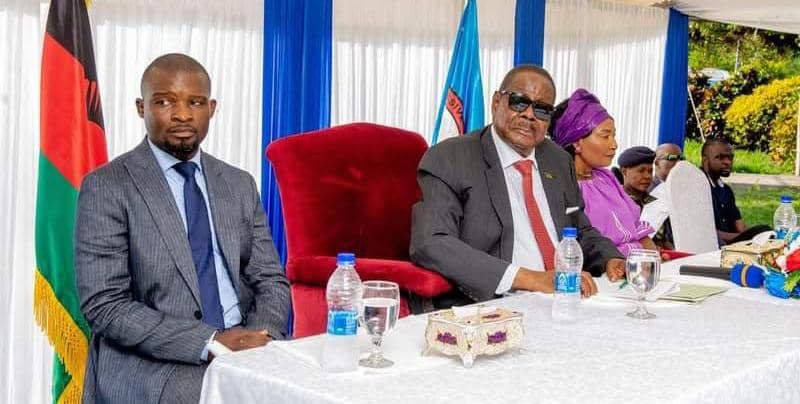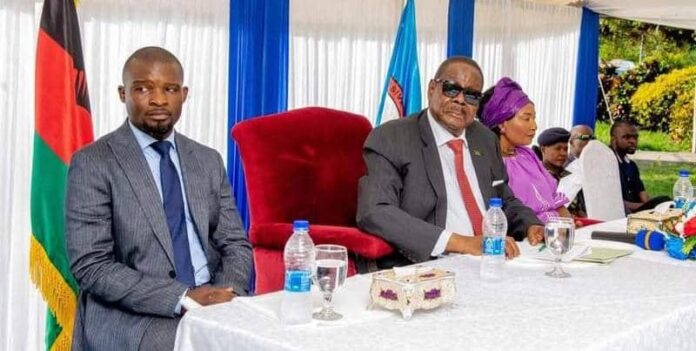By Burnett Munthali
The political storm surrounding the alleged visit of CCAP Nkhoma Synod ministers to former President Arthur Peter Mutharika’s Page House has taken yet another dramatic turn.
What initially seemed like a symbolic pastoral engagement has now escalated into a full-blown controversy, questioning not only the Synod’s internal cohesion but also the former president’s understanding of the visit’s intentions.
The Synod, in an official statement dated April 15th, 2025, issued a categorical denial that the visit was sanctioned by its leadership.
According to the statement, only six of the Synod’s 267 ordained ministers were involved in the Page House meeting with Mutharika.

This clarification has raised more questions than answers, particularly regarding the identity of the ministers involved and the nature of their discussions with the former head of state.
Critics are wondering whether Mutharika was misled into believing that the visit represented the broader position or endorsement of the Nkhoma Synod.
In the same vein, others are questioning whether the Synod itself is trying to distance itself from political controversy by portraying the ministers’ visit as a rogue act.
Social media and political commentary spaces have since been flooded with speculation and suspicion about the real motives behind the meeting.
Some observers argue that the Synod’s denial may be a form of damage control, particularly considering how politically sensitive such religious endorsements can become in Malawi’s charged electoral climate.
The timing of the visit—just months before the country heads into a crucial general election—adds more intrigue to the unfolding drama.
Mutharika, who remains an influential figure within the opposition Democratic Progressive Party (DPP), has not issued an official statement to clarify whether he viewed the visit as an endorsement or a private spiritual engagement.
However, sources close to the Page House event say the former president had received the ministers warmly and understood the meeting as a sign of goodwill and possible support.
If this is true, then the Synod’s public disavowal would come as a personal and political embarrassment to Mutharika.
It also raises critical questions about who organized the visit and what agenda was communicated to both the former president and the participating clergy.
Was it a case of miscommunication, political maneuvering, or deliberate deception?
The Synod’s leadership insists that it had no prior knowledge of the ministers’ visit and that it remains apolitical in line with its ecclesiastical mission.
But observers note that this is not the first time a religious body in Malawi has found itself entangled in political controversy.
Over the years, faith-based institutions have often struggled to maintain a delicate balance between prophetic witness and political neutrality.
The Nkhoma Synod’s denial of involvement may have been necessary to preserve its credibility and unity among its membership.
However, the damage—at least in the court of public opinion—may already have been done.
For now, the names of the six ministers who allegedly visited APM remain undisclosed, further fueling speculation and demands for transparency.
Civil society actors and commentators are calling for the Synod to conduct an internal investigation and publicly share its findings to restore confidence and dispel misinformation.
Others suggest that the incident could be symptomatic of deeper divisions within the Synod, where certain members may harbor political leanings that conflict with the official doctrine of neutrality.
If left unresolved, this incident could harm not only the image of the Nkhoma Synod but also its ability to engage credibly in national matters.
Meanwhile, political players on both sides are watching closely, recognizing that endorsements—or perceived endorsements—from major religious institutions carry significant weight among the electorate.
This story continues to develop, but one thing remains clear: either Arthur Peter Mutharika was grossly misinformed, or the Synod is now scrambling to cover tracks in an attempt to contain an internal mutiny.
Only time—and perhaps a full disclosure from both parties—will reveal the whole truth behind what really happened at Page House.
Until then, Malawians are left to navigate through a maze of official denials, strategic silences, and political undertones that continue to blur the lines between faith and power.



